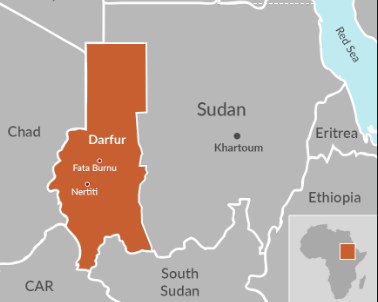A new wave of attacks on civilians in Darfur since mid-November 2021 highlights the urgent need for the United Nations to enhance its scrutiny of the restive region of Sudan, Human Rights Watch said today.
According to the rights body, a year after the withdrawal of the United Nations/African Union Hybrid Mission in Darfur (UNAMID), violence between armed groups, in some cases implicating state security forces, has been on the rise, with a devastating impact on civilians.
“The UN should deploy a robust human rights monitoring presence to the area, including expertise in gender-based crimes,” Human Rights Watch said in a press release.
“The resurgence of violence in Darfur over the last year has left a trail of devastation, with scores killed and injured, massive displacement, and thousands of homes destroyed,” said Mohamed Osman, Sudan researcher at Human Rights Watch. “International monitors need to refocus their attention on Darfur.”
The rights body said while various factors, often localized ones, played a role in the recent uptick in violence, the failure of the authorities over the last two years to provide meaningful civilian protection and justice for past and ongoing abuses have contributed to the escalation in violence and civilian harm.
In December 2020, the United Nations Security Council terminated the mandate of the joint United Nations-African Union peacekeeping force (UNAMID) and called on [4] the government to assume full responsibility for civilian security. A new political mission, the UN Integrated Transition Assistance Mission in Sudan (UNITAMS), was mandated to “support the strengthening of the protection of human rights, in particular in conflict-affected areas.”
“But the peacekeepers’ direct mandate to protect civilians in Darfur was dropped and in practice, UNITAMS has focused more on institution-building than human rights monitoring,” the statement read. “This is despite clear evidence of mounting violence and despite concerns raised by internally displaced communities that the peacekeepers’ departure would leave them more vulnerable to attacks.”
According to Human Rights Watch, the departure of UNAMID not only left vulnerable communities in Darfur unprotected but also led to a gap in the monitoring of the abuses.
UNITAMS’s head on December 10 already flagged the need for the mission to redouble human rights and civilian protection efforts.
The joint human rights office in Sudan of both UNITAMS and the Office of the High Commissioner for Human Rights (OHCHR) should prioritize regular access to Darfur to investigate and publicly report on abuses there, Human Rights Watch said.
“Recent events should be a stark wake-up call for the international community that it is failing the people of Darfur,” Osman said. “The UN’s priority should now be to ramp up human rights monitoring and ensure rigorous scrutiny of Sudan’s efforts to protect millions of Darfuris, a population that has already suffered years of abuse and violence.”




